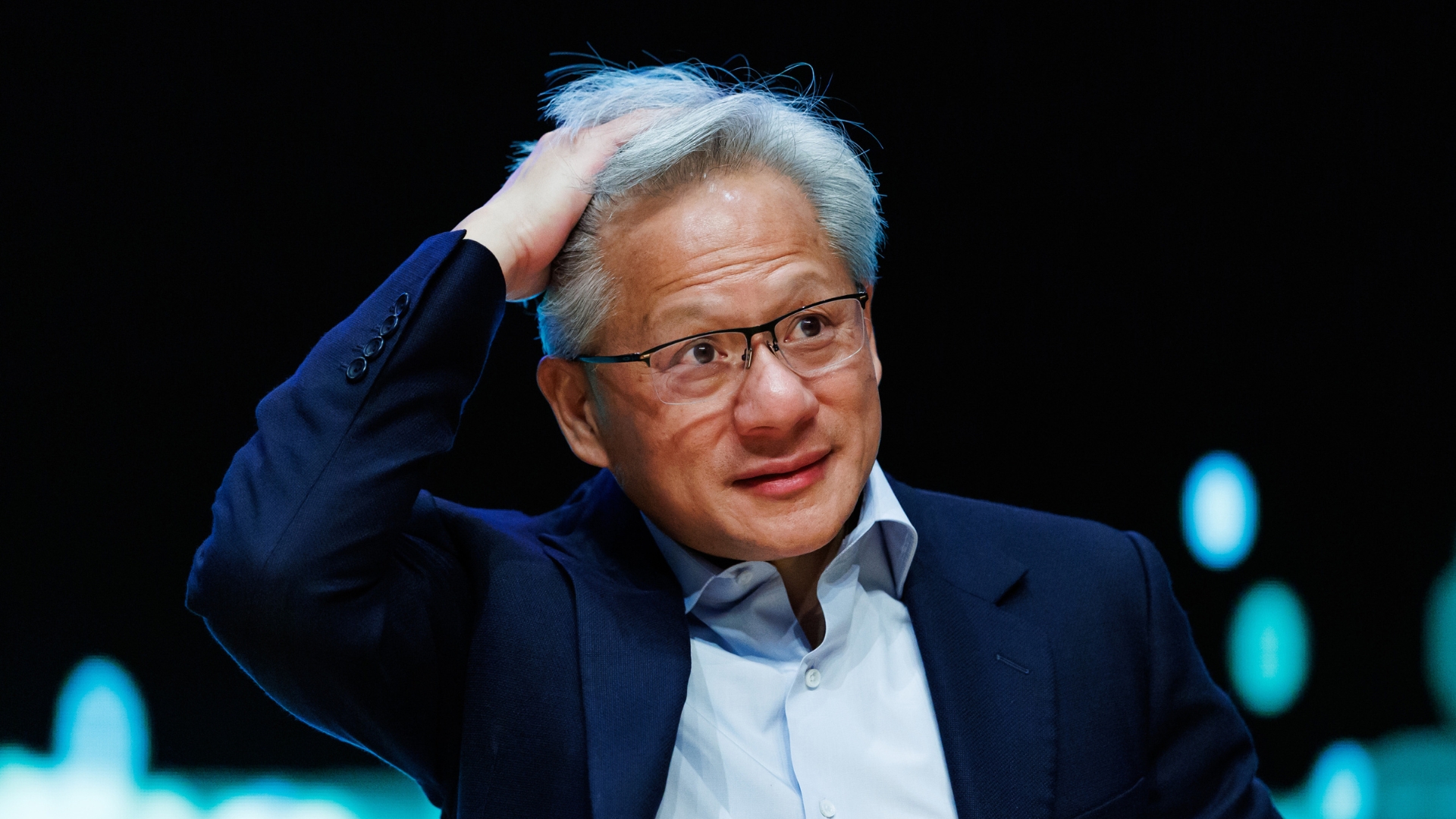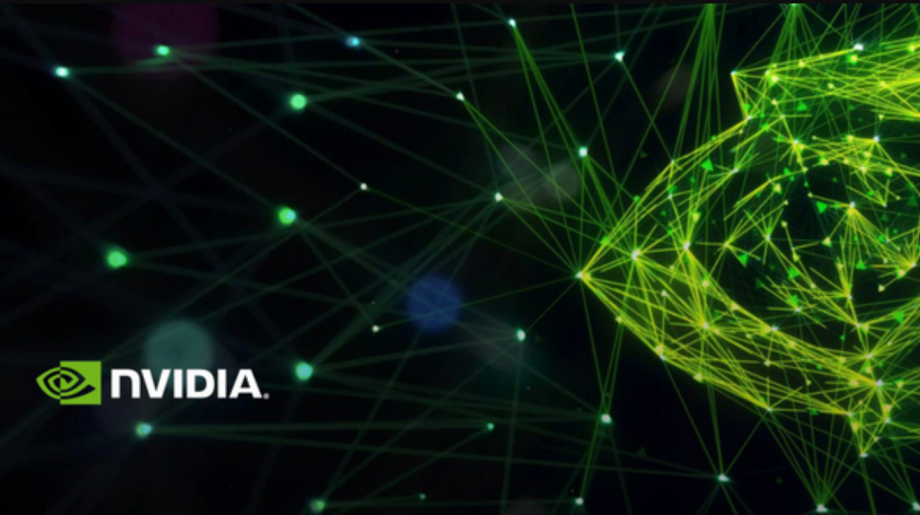1. The Headlines: What’s Going On
- Nvidia has signed a memorandum of understanding (MoU) with Kazakhstan to provide AI accelerators in a deal reportedly worth $2 billion. cryptopolitan.com+4ForkLog+4Seeking Alpha+4
- Included in this, the deal is tied to the creation of a sovereign “AI hub” in Kazakhstan, powered by Nvidia infrastructure, with a 100-megawatt or more capacity site. Investing.com+2ForkLog+2
- Separately, Nvidia has joined a founding role in an India-based “deep-tech alliance” worth $2 billion to support start-ups in AI, semiconductors, space & robotics in India. Metro India
Thus, the $2 billion figure appears in more than one context — a regional hub (Kazakhstan) and a startup alliance (India). What ties these together is Nvidia’s push to embed itself deeper into global AI infrastructure.
2. Why It Matters: Strategic Context
a) Infrastructure is the new battleground
AI is no longer just about software or models — it is fundamentally about compute infrastructure: chips, data-centers, power, cooling, networks. Nvidia has long been the leader in AI GPUs and related hardware. These deals signify that Nvidia is locking in supply, customers and strategic positions globally.
For instance, the Kazakhstan hub is described as “sovereign AI ecosystem” building. Investing.com+1 By supplying its chips and infrastructure to national-level projects, Nvidia extends its influence beyond commercial into strategic/governmental domains.
b) Global expansion and diversification
By entering Central Asia (Kazakhstan) and South Asia (India) at scale, Nvidia is diversifying its geographical footprint — not just selling chips in the U.S. and China but embedding in emerging markets, national strategies and deep-tech ecosystems. The India alliance (deep-tech start-ups) signals that Nvidia sees long-term growth outside just the big hyperscalers. Metro India
c) Locking in long-term demand
Large deals such as these give Nvidia more certainty of future demand for its hardware and systems. For example, the Kazakhstan deal locks in a national project powered by Nvidia. This helps Nvidia justify massive capital expenditures, R&D efforts, and system scale-up.
3. The Mechanics: What’s in the Deal(s)
- In Kazakhstan: The hub is planned with 100 MW capacity, implying a very large compute cluster. Kursiv Media Kazakhstan+1
- Nvidia is to supply its AI accelerators (GPUs, possibly new generation) to partner(s) in those countries. Seeking Alpha+1
- In India: Nvidia will provide training, technical mentorship and become a founding member of the alliance for deep-tech start-ups, signalling a strategic role beyond pure hardware sales. Metro India
4. Broader Implications: How This Changes the Game
a) National AI sovereignty & global competition
As countries like Kazakhstan build sovereign AI ecosystems, the map of global AI leadership shifts. Countries previously outside the “big three” (US, China, EU) are now entering the race. Nvidia’s presence in those projects means the hardware axis of AI is now widening.
b) The hardware & software ecosystem becomes more entrenched
Nvidia isn’t simply selling chips — it is embedding its ecosystem (hardware design, software stack, systems). This creates higher switching costs for customers and may strengthen Nvidia’s dominant position in AI infrastructure globally.
c) Potential regulatory, competitive and risk issues
With such scale and global reach, Nvidia’s deals could draw regulatory scrutiny, especially around competition (monopolistic hardware supply chains) and geopolitics (export controls, national security). The more Nvidia becomes essential to multiple national AI efforts, the more exposed it becomes to risk of supply-chain disruption, regulation or escalation.
d) A signal for the broader AI investment wave
These announcements dovetail with other mega-scale AI infrastructure deals — e.g., the ties between Nvidia and software giants, hyperscalers ordering massive volumes of GPUs. One analyst noted that infrastructure spending for AI may require $2 trillion over the coming years. InvestorPlace
5. What to Watch Next
- Delivery and deployment: When will the Kazakhstan hub go live? Will the hardware shipments and data-centers be operational at planned scale?
- New generation hardware: Nvidia’s next-gen GPUs (e.g., Blackwell/GB300/GB200) will be key. Delays or supply constraints could impact these deals.
- Financing structure & transparency: Large deals may include equity stakes, revenue-sharing, or “circular” arrangements. Analysts are watching for how much is genuine demand vs internal “circle” deals. The Times of India
- Regional competition and regulation: Will other chipmakers or countries attempt to counter Nvidia’s dominance? How will governments respond to large national-level AI engagements?
- Impact on Nvidia’s valuation & margins: These deals commit large scale demand, but execution, cost pressures, supply constraints, and competition will affect margins and investor expectations.
6. Challenges & Risks
- Supply chain and hardware bottlenecks: As demand for GPUs escalates, manufacturing, packaging, and delivery could face shortages.
- Geopolitical risk: Export controls, national-security regulations (especially on AI hardware) could disrupt global deals.
- Execution risk: Building large-scale data centres (100 MW, exaflop architecture) is complex, time-consuming and capital intensive.
- Competitive threat: Although Nvidia is dominant now, alternatives (custom ASICs, other chip firms) may emerge — some research shows non-Nvidia NPUs could challenge GPUs. arXiv
7. Conclusion: A Pivot Point for AI
The $2 billion-class deals that Nvidia is signing — such as in Kazakhstan and India — are more than just large transactions. They mark a shift in scale and geography of AI infrastructure, the embedding of hardware providers into sovereign strategies, and the potential cementing of Nvidia’s role at the heart of the AI ecosystem.
In many ways, we are witnessing a pivot: from AI as an algorithm-battle to AI as a compute-infrastructure arms race. If Nvidia executes successfully, this might set the architecture, geography and economics of AI for the next decade.
But scale brings complexity, risk and competition. The next few years will determine whether these deals translate into sustained dominance — or whether challengers, delays or regulation will disrupt the story.
One thing is clear: Nvidia’s $2 billion-level deals are not just transactions — they might be land-marks in the shaping of the AI era.
‘China is going to win the AI race’ — Nvidia CEO Jensen Huang decries the price of electricity in the US, contrasts it with China’s subsidized pricing
Nvidia CEO Jensen Huang says Washington has lost its edge in artificial intelligence and warns that China will win the AI race. He cited the West’s cynicism, export controls, and favorable energy circumstances in China as the reason, claiming it is much easier for companies to access energy in the country.
The chief of the most valuable company in the world by market cap has long been saying that the U.S. ban on chip exports is a failure, and that the spread of its advanced semiconductors is vital for it to retain its competitive advantage globally. However, the ongoing trade war between the two powers has resulted in export bans of Blackwell chips from the White House on the one hand, and the CCP banning foreign AI chips from state-funded data centers on the other. Because of this, Nvidia’s market share in China has since dropped to basically zero, which probably led to Huang’s statement to the Financial Times.
“China is going to win the AI race,” Jensen commented. He also added that “we need more optimism,” saying that the West’s cynicism is holding it back. Huang released a statement on Nvidia’s X account a few hours after FT published his words. “As I have long said, China is nanoseconds behind America in AI. It’s vital that America wins by racing ahead and winning developers worldwide.” The Nvidia CEO previously mentioned this in late September on a podcast, leaning on his stance that he’s been preaching for over a year that export restrictions on his company’s AI chips are detrimental to the U.S.’s long-term interests.

Huang argues that if China loses access to Nvidia’s latest AI GPUs, its tech companies will be forced to purchase homegrown alternatives, which will pour money into its chip makers and further drive research, development, and innovations in the local semiconductor industry. Aside from that, it will also reduce these companies’ dependence on Nvidia’s software ecosystem, making it easier for them to migrate to a Chinese AI processor. On the other hand, other industry leaders contend that the U.S. is heavily dependent on China and that it’s only using Nvidia’s products as a stopgap until it builds a credible competitor to the AI chip powerhouse. The comments come just days after the administration hinted that China could have access to Nvidia Blackwell chips, but only once they are out of date.
Aside from export controls, Nvidia’s top executive also highlighted China’s approach to energy subsidies that make it easier for companies to put up power-hungry data centers, versus the hodgepodge of rules the different States in the U.S. are pushing on AI, potentially resulting in “50 new regulations.” Experts have been saying that electricity generation is the next bottleneck that the AI industry must solve, and it seems that Beijing is miles ahead, as it has already addressed the energy problem for its AI infrastructure. On the other hand, American tech companies are still investing in alternative power sources like small modular reactors and space-based data centers, which will take years to materialize, if at all. Recently, Microsoft revealed it has GPUs it simply can’t plug in because it doesn’t have the energy required.
The status of the AI race between the two global rivals isn’t clear, especially as politics and protectionism are muddying the waters. Aside from that, both sides’ arguments for and against China getting access to Nvidia’s AI GPUs have merit, meaning we will probably only truly see who is right years down the line. But one thing is clear in all of this — Nvidia will get a massive advantage if it supplies the chips that both sides use in the AI race.


